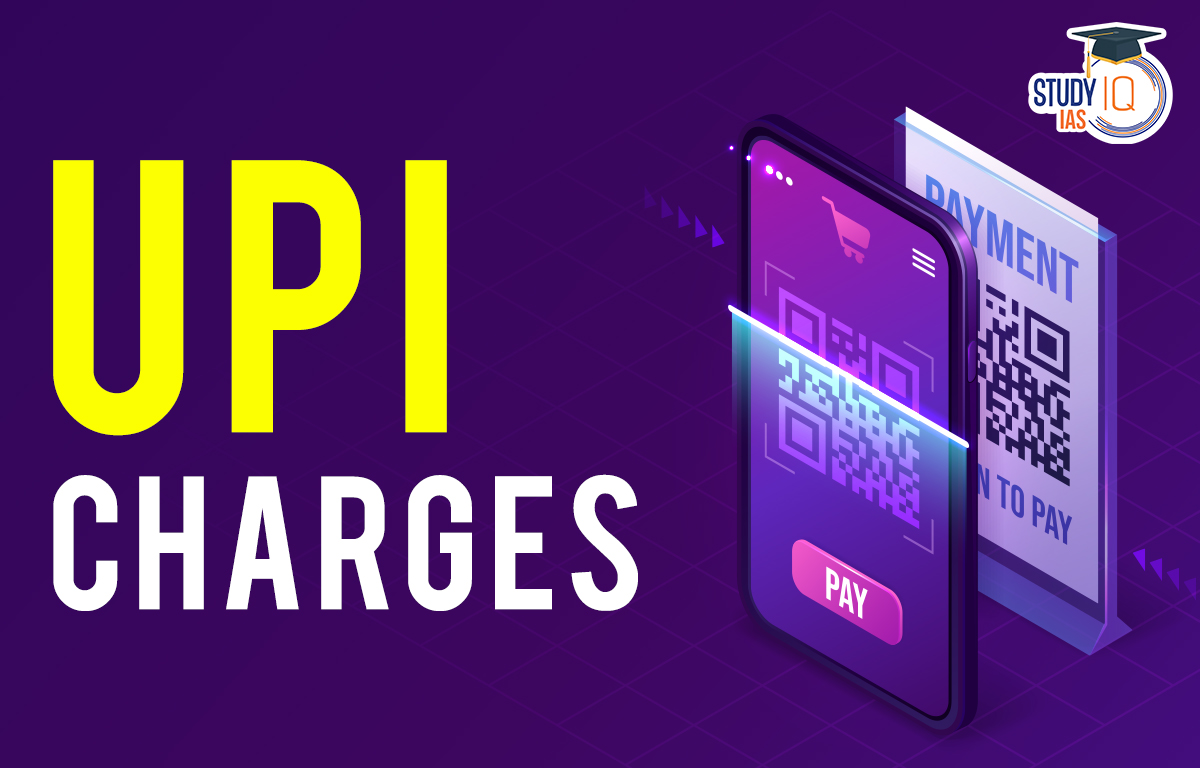Table of Contents
UPI Charges
National Payments Corporation of India (NPCI) created the instant real-time payment system known as the Unified Payments Interface (UPI). Unified Payments Interface (UPI) was introduced by NPCI with members in institutions. It enables person-to-person (P2P) and interbank peer-to-peer (P2P) transactions. The system integrates multiple banking features, seamless fund routing, and merchant payments into a singular mobile program (of any participating bank). The UPSC Syllabus includes International Court of Justice as a significant subject. The UPSC Mock Test can help candidates prepare for the exam with more precision.
UPI Charges and Features
Instantaneous money transfers on mobile devices every day of the year, 24/7. One mobile application can be used to view multiple bank accounts. It offers seamless single-click payment as a very powerful feature while also having single-click two-factor authentications that are in accordance with regulatory requirements.
With no need for the customer to enter information like their card number, account number, IFSC, etc., the virtual address of the customer for Pull & Push allows for incremental security. It is an in-app or single-application vendor payment. There is a straight complaint-raising option for mobile apps.
UPI Charges in Present Context
A circular from the National Payments Corporation of India states that beginning on April 1, merchants using Prepaid Payment Instruments (PPI) to conduct deals through the Unified Payments Interface (UPI) will be charged. Merchants using Prepaid Payment Instruments (PPI) to perform transactions on the Unified Payments Interface (UPI) will be charged an interchange fee of 1.1% on the transaction amount for amounts over Rs 2,000, according to a circular from the National Payments Corporation of India (NPCI).
The interchange UPI Charges vary depending on the types of merchants covered by industry programmes. Peer-to-peer (P2P) and peer-to-peer-merchant (P2PM) transactions between bank accounts and PPI wallets will not be subject to an interchange fee, but the PPI issuer will pay the remitter bank a wallet-loading service cost of roughly 15 basis points.
UPI Charges and Norms
Interchange fees for wallet usage are established by the new NPCI guidelines on wallet interoperability and will be given to wallet issuers including Paytm, PhonePe, and Google Pay, among others. Additionally, they consist of UPI-wallet loading fees that wallet providers will pay to the remitter banks or the bank accounts that the money is being deducted from.
UPI Charges Benefits
As UPI payments can now be made using QR codes and other devices, the norms are anticipated to increase the appeal, scope, function, and usability of wallets and give consumers more payment options. Because a wallet can be loaded once to be used for multiple transactions rather than requiring a UPI code for each payment, wallets are therefore more handy than UPI transactions.
Additionally, customers will have the option of adding money to their wallets using a variety of methods, such as credit or debit cards, BNPL (Buy Now Pay Later), net banking, and others, enabling them to use any instrument for UPI purchases, whether directly or indirectly.
UPI Charges Disadvantages
UPI charges will deter people from engaging in a flurry of UPI transactions. It will weaken the UPI/MDR-based digital economy.
UPI Charges UPSC
Policymakers must gather more information on transfer costs, user preferences, both merchants and consumers, and perform a thorough analysis of substitutability and competition in the digital payments sector in order to help India’s UPI reach its full potential. Students can read all the details related to UPSC visiting the official website of StudyIQ UPSC online Coaching.


 Goods and Services Tax (GST), Objectives...
Goods and Services Tax (GST), Objectives...
 World Oceans Day 2025, History, Theme, S...
World Oceans Day 2025, History, Theme, S...
 World Environment Day 2025, Theme, Histo...
World Environment Day 2025, Theme, Histo...





















